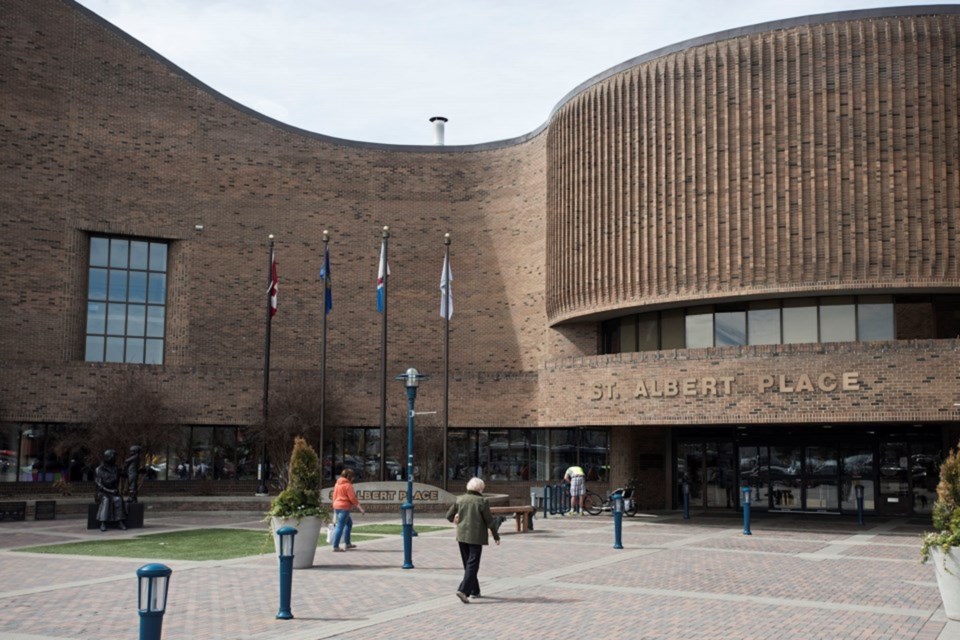St. Albert city council has a jam-packed agenda for their first meeting of May, including a notice from administration that the cost of buying 19 new buses is about 15 per cent higher than expected, a debate around in-person meeting attendance for councillors, and more.
Last August council signed-off on a multi-year spending plan to buy 19 new transit buses between 2024 and 2026, with the first two buses expected this year in order to introduce transit services in the Jensen Lakes and Riverside neighbourhoods.
RELATED: New buses en route for St. Albert
At the time, council heard that $1.62 million would be spent on the two buses to address growing service needs, while $9.25 million would be spent in 2025 to purchase eight of the remaining 17 buses, all of which are to replace existing buses that are nearing the end of serviceability.
A new report to council says that those cost estimates council approved are about 15 per cent lower than the cost the city is facing to actually buy the buses. As such, council is being asked to increase the 2024 budget by $213,500 to buy the two growth buses, and to increase the 2025 budget by about $1.25 million.
In August council heard that the 2026 cost to purchase the nine outstanding replacement budgets would be about $8.27 million, although that price point was not set in stone and won't be until 2025.
Debate over in person meeting attendance
As the Gazette reported in March, Coun. Mike Killick has put forward a motion to amend council's policy regulating online meetings to add a section that states “councillors shall make every effort to attend council meetings in person and only attend council meetings by electronic communications due to unforeseen, extenuating, or extraordinary circumstances.”
RELATED: St. Albert council to debate meeting attendance motion
A new report to council written by the city's director of legal, legislative, and records services, Marta Caufield, says that administration scanned nine other Alberta municipalities to see if a similar rule exists elsewhere, and found that only Parkland County had a similar, but still quite different, rule.
Members of Parkland County's council can attend meetings virtually if they are out of town or if they (or an immediate family member) are dealing with “physical restraints” that prevent in-person attendance; if there is quorum of other members of council attending in person; or simply if the county's chief administrative officer is present at the meeting.
Unlike most items before council, Caufield wrote that administration doesn't have a recommendation on whether or not council should approve the motion, instead, Caufield wrote that “administration does not view monitoring the in-person or virtual attendance of councillors at council meetings as an administrative function.”
Mayor Cathy Heron has spoken in favour of Killick's motion, while Coun. Natalie Joly, who attends most meetings virtually, has spoken against it.
Council to finalize 2024 tax rate
With St. Albert's 2024 budget now finalized as of April 16, council will be looking to approve the associated tax rate bylaw on May 6.
The bylaw, which must be in place before property assessments and tax notices get sent to property owners, will formalize this year's 5.3 per cent property tax increase.
READ MORE: St. Albert property tax increase drops to 5.3 per cent
A report to council about the bylaw explains that 2024 mill rate — the tax levied per set amount of property value — for the city's tax levy is 8.68, which leads to property owners paying $868.57 for every $100,000 of property value. The 2024 mill rate for non-residential property is 13.13, which leads to a levy of $1,312.81 for every $100,000 of property value.
However, those mill rates don't include the provincially-set education requisition aspect of property taxes, meaning that on top of the $868.57 for every $100,000 of property value that residential property owners will pay will be another $248.75 for every $100,000 of property value specifically for the education requisition. For non-residential property owners, the 2024 education requisition is $365.60 for every $100,000. of property value.
Also included in the tax rate bylaw is the Homeland Housing requisition mill rate.
Homeland Housing is a public non-profit organization that manages seniors housing facilities in 11 municipalities in Alberta, including St. Albert, Morinville, and Sturgeon County.
The new residential mill rate for this requisition is 0.079, meaning $7.99 will be levied for every $100,000 of assessed property value. The new non-residential mill rate for the Homeland Housing requisition is 0.12, or $12.24 for every $100,000 of property value.




